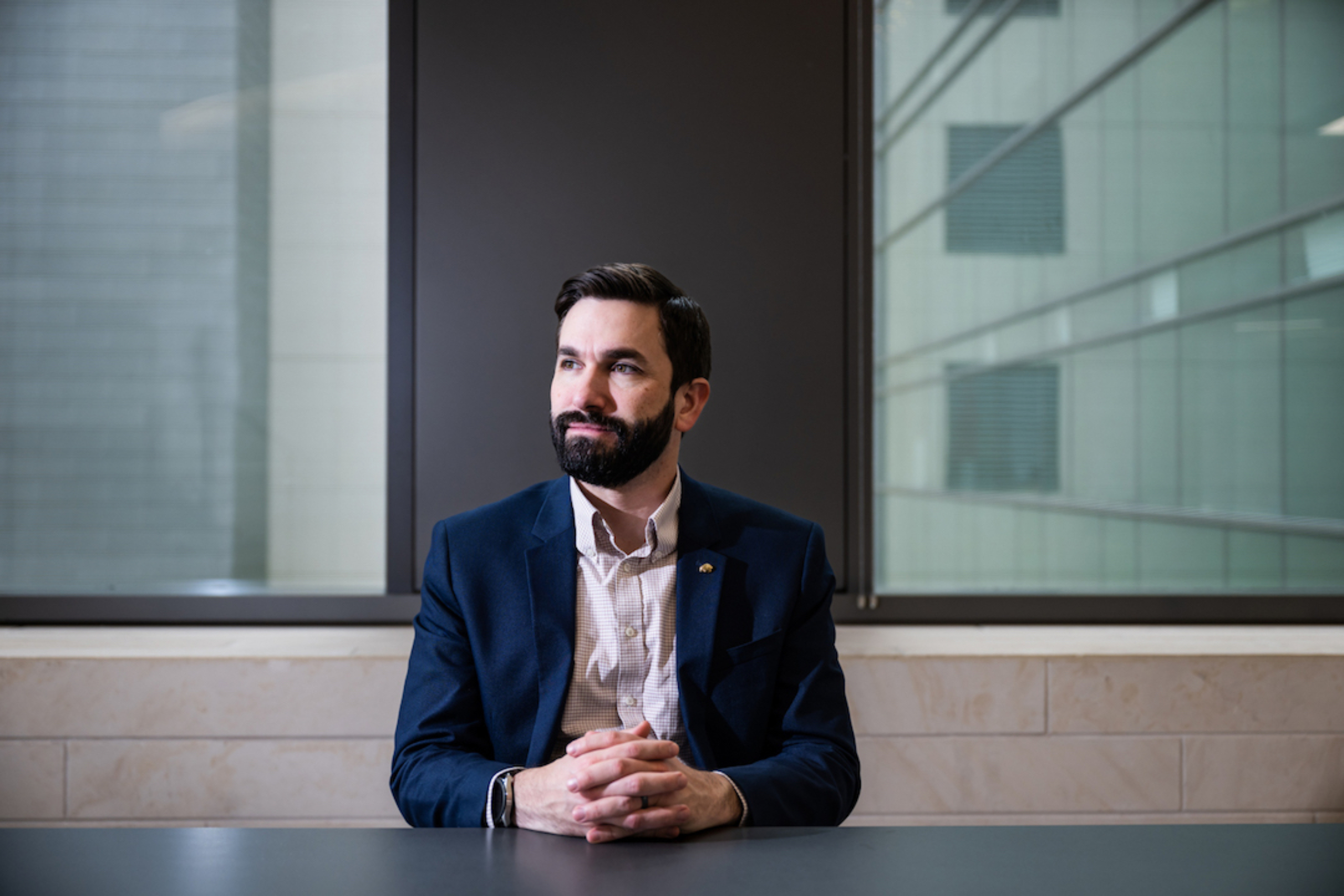Daniel Freedman, D.O., knows that not everything is what it seems — especially when it comes to seizures. Psychogenic nonepileptic events look like epileptic seizures but are not, making them highly misunderstood by patients, families and physicians alike.

Daniel Freedman, D.O.
Freedman, a child neurologist and assistant professor of neurology at Dell Medical School, co-developed the Psychogenic Nonepileptic Events Clinic, the only clinic of its kind in Texas and one of the few in the U.S. There, he and partners, including Lindsey Elliott, Ph.D., are working to improve health communication for families facing the diagnosis — as well as mitigating the social stigma surrounding the condition.
These episodes are not fake; patients with the condition are suffering and need our help.
Daniel Freedman, D.O.
How would you explain psychogenic nonepileptic events to someone who is not aware of the condition?
Unlike epileptic seizures, psychogenic nonepileptic events are not triggered by electrical abnormalities in the brain, making it one of the most misunderstood neurological disorders, as patients are often accused of faking their symptoms. However, the symptoms are tangible and frightening for patients and their caregivers. Research has shown that patients can improve with symptom-specific therapy, which is offered in the Psychogenic Nonepileptic Events Clinic.
Not comprehending something does not mean it is false. These episodes are not fake; patients with the condition are suffering and need our help. There are effective treatments for psychogenic nonepileptic events, but many patients may never be able to receive treatment if they feel dismissed by the health care system, hence the need to decrease stigma and raise awareness.
What experience helped you gain insight into the need for additional research surrounding this condition?
I was a third-year resident on call, new to neurology, when I was paged by a distressed parent whose child had just been discharged from the hospital for psychogenic nonepileptic events. Unfortunately, the events were now worse. The father was upset at having been told everything was fine with his daughter, despite that not being the case. I met with the father and his daughter in the emergency department, where I discussed the child’s diagnosis. The discharging team had told him things would get better since his child’s scans seemed normal, but his daughter hadn’t been given a formal diagnosis, and he wanted to know what was happening to her.
I explained the limitations of medical tests for a disorder like this: Normal scans do not equate with normal health. After talking about the interaction of the mind, brain, and body, and how all three components are interrelated, I walked him through the basic principles of treatment and the expected prognosis. When our conversation concluded, he shook my hand as he thanked me for my time and explanation.
How will your research help improve the experiences of those experiencing these events?
Although psychogenic nonepileptic events have been described throughout time, we are only just diving into this disorder. One of the biggest challenges in explaining this diagnosis is that we do not — yet — know what causes psychogenic nonepileptic events; however, we have some understanding of risk factors. For example, having epilepsy is one of the biggest risk factors for developing psychogenic nonepileptic events. Neuroscience data also supports the idea that psychogenic nonepileptic events is caused by a loss of agency over the body. We have limited data on how best to communicate this diagnosis, which is one of the key areas we are investigating.
As I learned from my interaction with the parent of a child experiencing psychogenic nonepileptic events, the difference between good and bad communication regarding this diagnosis has the power to change the clinical course for patients — resulting in fewer emergency department visits, decreased distress for patients and caregivers, and fewer absences from work or school.